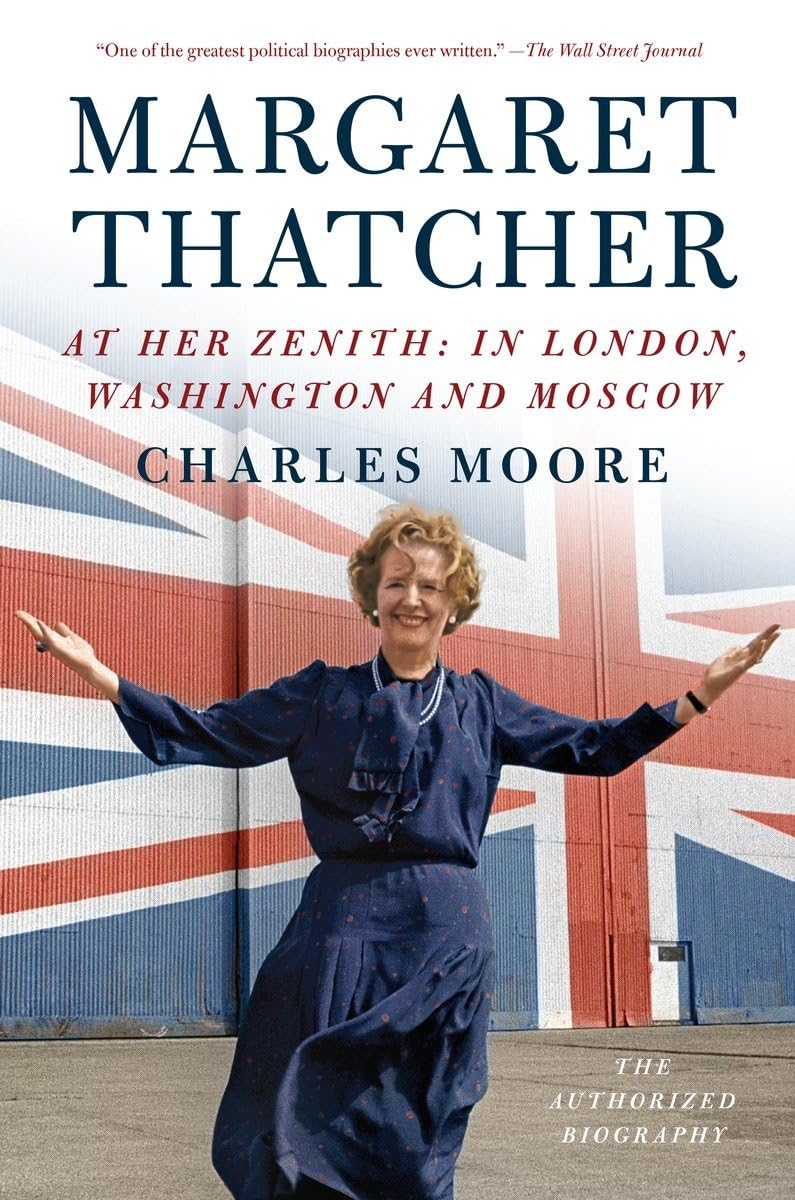

Full description not available
N**A
Objective, deep, interesting
This book was rich with detail about Margaret Thatcher's life, going into great detail about who she was, what she did, and how other people reacted to her. I particularly liked the chapter of people's reactions in various media in how they felt about her. For such a complex and controversial person, it's important to have an objective understanding of who she was, and what specifically she actually did. I wish that Moore would write about Ronald Reagan or John Paul II, as it is especially difficult to find any biography of those two that isn't either shamelessly positive or unrealistically negative.
E**Y
Amazing!
I assumed this would be poor because how cheap! I got all three volumes and this one was half the price but in the best condition of all of them!
I**.
Excellent biography, but incomplete
I have read both volumes, 1 and 2, but this biography is incomplete. Where is the book covering the period after her zenith until the end of her political career/life? I should like to read about this last important part of her remarkable life. I am sure Charles Moore will have written this, but I can't find it!
G**R
They didnt call Maggie Thather the Iron Lady for nothing!
A great book about a formidable lady. I particularly like the way the author footnoted his source material and with the touch feature of Kindle it is child's play moving back and forth. I recommend this book to anyone who is currently paying any attention to the Hilldabeast / Bernie debates. This book is proof that more government and more socialist dogma is bad for the nation.
J**H
Well written and interesting,
Well written and interesting, from someone who lived through the Thatcher years in England and witnessed the reversal of 50 years of decline wrought by socialism
C**Y
Another winner in this excellent series.
Moore does an outstanding job in part 2 of Mrs. Thatcher's biography, and he pulls no punches, good or bad. I greatly anticipate volume 3.
C**X
A wonderful book
A first-rate account of the life of one of Britain's most important prime ministers. It's scholarly yet readable and admiring without being hagiographic
W**L
Drowned in a sea of minute detail.
This book may be useful for advanced scholars digging for minute details, but it is no book for the typical intelligent reader. Unlike this book, Thatcher's own autobiography, almost as long, [and her later volume STATECRAFT] provides subheadings for each chapter which guide you through the unfolding story. Moore's countless references to GCHQ, SIS, TUC, NUM, CEGB, MISC, NCB, ACPO, TGWU, GLC, NACODS, DTI, PSBR, NIS, MTFS, OFTEL, BT, BL, BA, BG, ERM, EMS, etc. are impenetrable for American readers not intimately familiar with the intricacies of the British political system. Chapters on the troubles in Northern Ireland, and on the Poll Tax, are both opaque to those who do not have intimate knowledge of the British political administration, and on its system of taxation. We are lost in a sandstorm of boring detail that all but obscures the momentous social and political issues at stake in the drama. I confess that, not wanting to die of tedium, I skipped a few chapters.Some chapters are worth anybody's time; especially Ch. 19: "What they saw in her." Here you get a catalog of what Thatcher was too refined to include in her own account: the cheap, often vulgar insults churned out by the radical left-wing "intellectuals." "Mrs. Thatcher is the point at which all snobberies meet: intellectual snobbery, social snobbery . . . the metropolis about the provincial . . . the South about the North . . . men about career women." The socialists were venting their frustration and rage at the Thatcher revolution of economic freedom and prosperity. The chapter balanced these lurid caricatures by responses from those who worked with her and knew her best.
J**6
Monumental [The Washington Post]
The first chapter of Part II of Charles Moore’s presumably definitive biography of Margaret Thatcher is entitled “Liberal imperialist”. The title of the last chapter is “The last victory”. The titles are astutely chosen: this second volume covers the five years between the British victory in the Falklands War (1982) and Mrs Thatcher’s third general election victory (1987).Charles Moore’s biography is to be seen as a labour of love: not necessarily love for its subject, but most emphatically love for the biographer’s art. A work of art it certainly is, with painstaking attention to the slightest detail, abundant notes and an impeccable index (not the easiest of achievements...)Some may prefer to skip over what they may consider the excessive detail of certain (nevertheless) key elements of the years 1982-1987, which include negotiations over the future status of Hong Kong, the UK’s stance on South Africa, monetarism… and may, like me, prefer the chapters focusing on domestic policy. The penultimate chapter, “What they saw in her”, as the 1987 election drew close, paints a devastating picture of the extent to which Mrs Thatcher was detested by many prominent figures in the UK.And it should be pointed out that this biography is no hagiography: Charles Moore never venerates his subject, and sometimes states quite clearly that it can be argued, in such and such an area, that she made the wrong decisions. Her vulnerability and her loneliness are often brought centre-stage.This book can be read by those who adored Mrs Thatcher and by those who loathed her. One way or the other, it is impossible not to continue to respect her single-mindedness… or to continue to criticise her bloody-mindedness.
Trustpilot
3 days ago
3 weeks ago